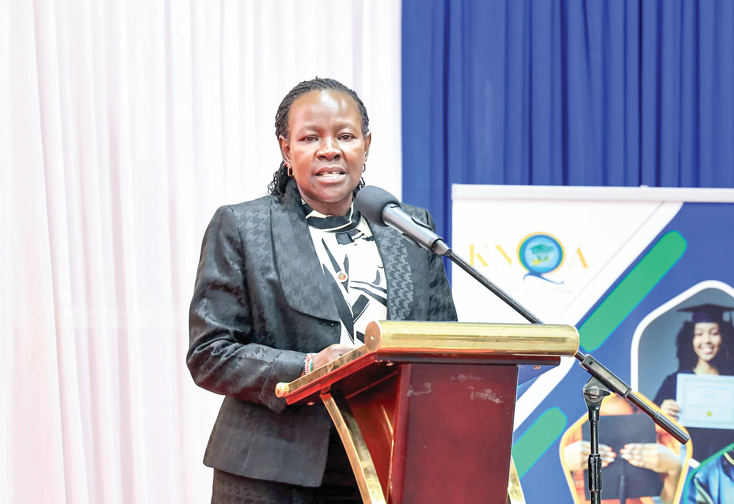Education ministry set to revise TVET curriculum

The Ministry of Education is set to introduce a revised Technical and Vocational Education and Training (TVET) curriculum aimed at equipping young people with industry-ready skills in a shorter period.
Speaking at Nyeri National Polytechnic on Monday, TVET Principal Secretary Dr Esther Muoria announced that the ministry is breaking down the current learning structure into competency-based modules, allowing students to complete their training in less than three months.
“We are shifting from long training periods in TVET institutions. Our goal is to ensure learners acquire practical skills quickly and receive certification that enables them to contribute to the country’s economic growth,” Dr Muoria said during a media briefing.
She emphasized that prolonged training delays employment opportunities, adding that the new curriculum will enhance efficiency.
Restructuring curriculum
“We have met with stakeholders at Nyeri National Polytechnic and agreed on restructuring the curriculum to ensure young people are work-ready within a short training period,” said the PS.
Dr Muoria further highlighted that the government is collaborating with industry stakeholders to align training programs with market demands.
She said courses in automotive engineering, mechanical engineering, agriculture, civil and building engineering, among others, will be restructured to match industry needs.
“This initiative will take effect in May, with the revised curriculum set to be ready in a month. We will focus on practical training while minimizing theoretical content,” she stated.
The PS underscored the importance of integrating the Competency-Based Curriculum (CBC) at the lower levels to facilitate a seamless transition into TVET institutions.
“By the time students join TVET, they should have a clear understanding of their craft,” she noted.
Dr Muoria reaffirmed the government’s commitment to training over two million youths in TVET institutions by the end of the year.
“We want Kenyans to know that the government is dedicated to equipping all youths with technical skills. Once you acquire these skills, you either get employed or become self-employed,” said Dr Muoria.
She also highlighted the role of a skilled workforce in attracting industrial investments into Kenya.
“For global industries to establish themselves here, we must build a pool of skilled youths. The more we enhance training, the more we encourage industrialization,” she said.
Dr Muoria was accompanied by Nyeri National Polytechnic Chief Principal Dr David Mwangi and other TVET stakeholders.













